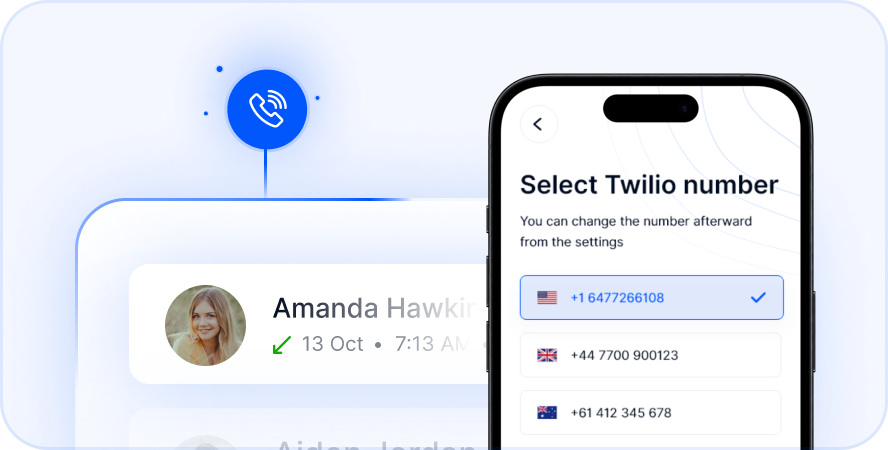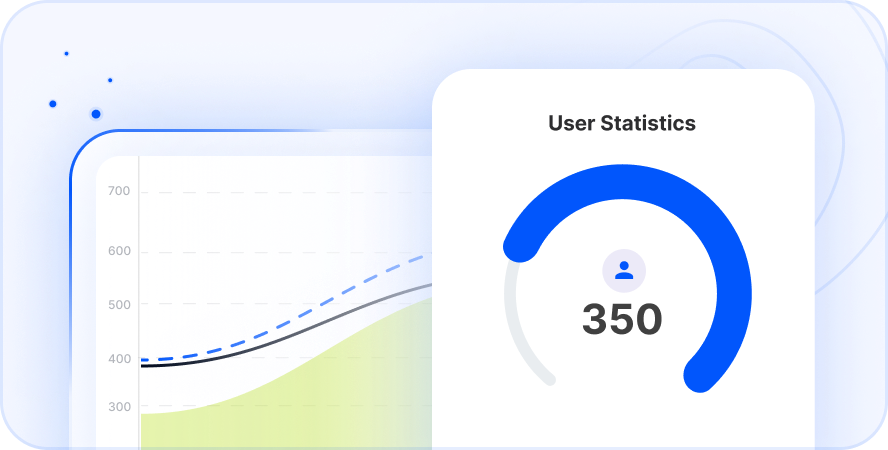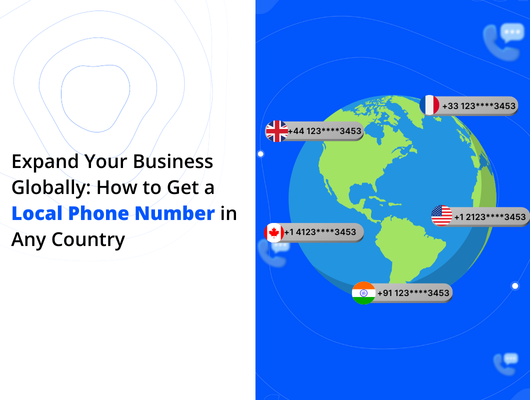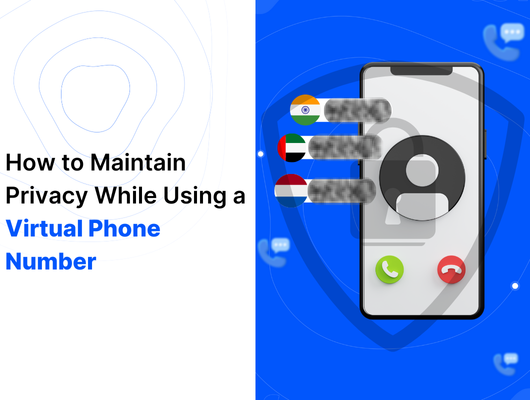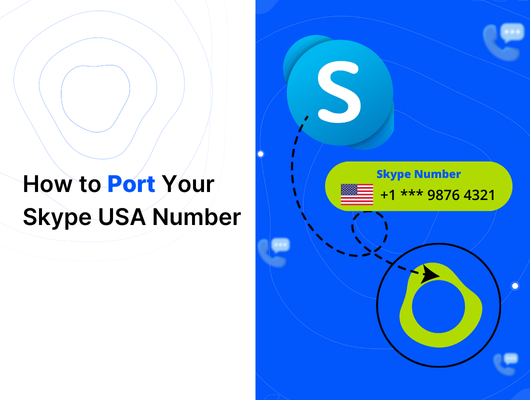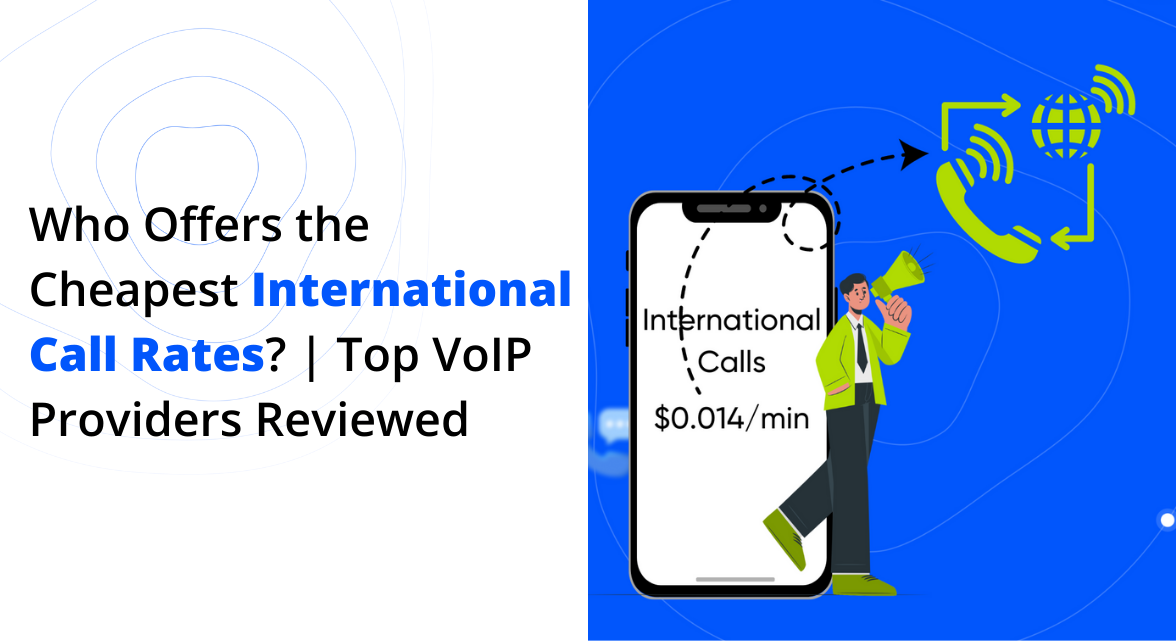
Staying connected with people across borders is more important than ever. However, making international calls can sometimes lead to unexpectedly high phone bills. Whether you need to talk to family abroad, manage international business, or simply stay in touch with friends overseas, finding an affordable way to call internationally is crucial.
Fortunately, the rise of internet-based calling services, known as Voice over Internet Protocol (VoIP), has made connecting globally much cheaper and easier than traditional methods. These services use your internet connection instead of standard phone lines. But not all VoIP providers offer the same value or features. In this guide, we will look at who offers the cheapest international call rates. We will also cover what you should consider when picking a provider and explore some of the best options available for making affordable international calls. For more background on how this technology works, you can read about Voice over IP on Wikipedia.
Why International Call Rates Differ So Much
Before we discuss the cheapest options, it helps to understand why the cost of calling another country can vary widely. Several key factors influence these rates. Knowing these factors can help you understand pricing and make a smarter choice.
Factors that affect international call costs include:
- The Country You Call: Different countries have varying costs for phone infrastructure and different rules. This can significantly change how much it costs to connect a call there. Calling some countries is simply more expensive than calling others due to local network costs.
- Calling Landlines vs. Mobile Phones: It often costs less to call a fixed landline number than a mobile phone number in the same country. Mobile networks usually have higher fees for receiving calls from other networks.
- Using VoIP vs. Traditional Phones (PSTN): Calling over the internet (VoIP) is almost always cheaper than using a traditional phone line (PSTN). This is because VoIP bypasses many of the fees associated with standard phone networks.
- Your Service Provider: Each provider has different agreements with phone companies around the world. These agreements determine the rates they can offer you. Providers also have different business models and overheads, which affect their pricing.
Understanding these points helps explain why rates change depending on where you call and which service you use.

Top Options for Affordable International Calls
Many services allow you to make international calls. Some are popular messaging apps, while others are dedicated phone services. Here are some of the leading options known for offering competitive rates.
Choosing the right one depends on your specific calling habits and needs.
Skype
Skype is one of the oldest and most well-known internet calling services. It remains a popular choice for calling people around the world. Skype offers competitive international rates, especially if you call frequently and use their subscription plans.
- Pros:
Subscription plans can be very affordable for regular callers.
Millions of people use Skype. It works well with Microsoft products.
Calls between Skype users are free.
Cons:
- Call quality can depend heavily on your internet speed.
- Calling mobile phones or specific countries (such as some in Africa or South America) may incur high rates.
Example Rates: Calling India might cost aroungo as high as $0.25/min.
Google Voice
Google Voice is a free service primarily for users in the United States. It’s great for managing calls and texts domestically but also offers low international calling rates. While it has fewer international features than some other services, its rates are competitive.
Pros:
- International call rates are very low for many destinations.
- Integration with other Google services you might already use is seamless.
- Calls within the U.S. and to Canada are free.
Cons:
- Primarily, this service caters to users based in the U.S.
- It offers fewer advanced calling features for international use compared to some dedicated VoIP providers.
Example Rates: Calling the United Kingdom from the U.S. might cost about $0.01 per minute. Calling India could be around $0.02 per minute..
WhatsApp
WhatsApp is widely used messaging app that also lets you make free voice and video calls. These calls use your internet connection (Wi-Fi or mobile data). It’s incredibly popular globally, making it easy to connect with many people.
Pros:
- International calls are free when connected to the internet.
- The app is used by billions of people worldwide.
- Calls are secure due to end-to-end encryption.
Cons:
- Both you and the recipient must have WhatsApp installed.
- Call quality depends on your internet speed. Additionally, using mobile data for calls can deplete your data allowance, potentially incurring costs depending on your plan.
Example Usage: Making calls is free over Wi-Fi. If you use mobile data, you’ll be charged based on your phone plan’s data rates, not a per-minute call charge.rnet. However, data charges may apply if you’re not on Wi-Fi.
Vonage
Vonage is often seen as a service for businesses, but it also provides excellent rates for international calls for individuals. It’s a solid choice if you need reliable calls or features for business communication.
Pros:
- Plans can be customized, which is beneficial for business needs.
- The service is known for its reliability and clear call quality.
- Good customer support is provided.
Cons:
- Generally, costs more than some of the basic consumer VoIP apps.
- Its focus on business features might be more than individuals require.
Example Rates: Vonage rates for international calls can start from around $0.01 per minute for countries like China and $0
Key Factors When Choosing Your International Calling Service
Finding the provider with the absolute lowest rate to one specific country isn’t the only thing to consider. Several other factors are just as important to ensure you get the best value and experience.
Think about these points before deciding:
- Pricing Transparency: Look for services with clear pricing. Some providers might have extra charges like connection fees, daily fees, or minimum usage rules. Always read the terms carefully so you know the full cost upfront. Avoid services with hidden fees.
- Call Quality and Reliability: Cheap calls are not useful if you can barely hear the other person or if calls drop often. Good call quality is essential, especially for important conversations or business calls. Reliable providers offer clearer calls and more stable connections, even if their rates are slightly higher.
- Flexibility and Features: Think about how you will use the service. Do you need features beyond just calling? Some services offer multi-device support, call recording, SMS messaging, or integration with other tools like CRM systems. If you need a second phone number for calling or texting, ensure the service offers that.
- Ease of Use: The service should be easy to set up and use, whether on a mobile app or computer. A confusing interface can be frustrating. Look for user-friendly apps and simple ways to manage your account and contacts.
- Considering these factors helps you find a provider that is not just cheap, but also reliable and suitable for your needs.
Introducing Telfon: A Solution for Affordable Global Communication
When looking for cost-effective ways to make international calls, Telfon is a strong contender. It’s designed to help both individuals and businesses connect worldwide without high costs. Telfon provides a comprehensive set of tools for communication.
Here’s why Telfon is a good option to consider:
- Competitive International Call Rates: Telfon offers some of the lowest rates for calling many popular countries. For example, you can call places like the U.K., India, and the U.S. for as low as $0.01 per minute. This makes it one of the most affordable services available for these destinations.
- Extensive Global Reach: You can use Telfon to make calls to over 180+ countries around the world. This wide coverage makes it a great tool for global communication, whether for travel, personal calls, or international business.
- Flexible Features for Various Needs: Beyond just calls, Telfon offers many useful features. You can purchase virtual phone numbers from different countries. It supports sending and receiving SMS messages. It also integrates with WhatsApp, allowing you to manage multiple WhatsApp accounts. Features like call recording, voicemail, and call forwarding are available. For businesses, there are advanced tools like user analytics, number management, and bulk messaging.
- Transparent Pay-As-You-Go Pricing: Telfon uses a pay-as-you-go model. This means you only pay for the minutes you actually use. There are no hidden fees or surprise charges, which helps you control your expenses. Many users find they can save significantly compared to traditional providers.
- Multi-Platform Availability: Telfon is available as an app for iPhone and Android. You can also access it through the Chrome Web Store. This lets you make calls from your preferred device.
- Supports Multiple Languages: Communicate in over 20 languages using Telfon. This feature is helpful for reaching diverse international contacts or clients.
Telfon is used by over 30,000 individual users and more than 600 companies globally. It offers a blend of low costs, reliability, and rich features, making it suitable for a wide range of users.

Other Smart Ways to Reduce International Calling Costs
Besides choosing a low-cost provider, there are other tactics you can use to save money when calling overseas.
Consider these additional tips:
- Use Wi-Fi Calling Apps: Apps like WhatsApp, Viber, FaceTime, or Telegram allow you to make free calls and video calls over the internet. If you are connected to Wi-Fi, these calls don’t use your cellular minutes or data allowance (unless you are on mobile data). Both people need to use the same app.
- Look for Unlimited International Call Plans: Some mobile carriers or VoIP providers offer monthly plans with unlimited calls to specific countries or regions. If you call certain destinations frequently, paying a fixed monthly fee might be much cheaper than paying per minute. Compare the monthly cost against your estimated pay-as-you-go usage.
- Consider Local SIM Cards When Traveling: If you are traveling to another country, buying a local SIM card there is often cheaper than using your home country’s plan for international calls (including calls back home). This gives you local rates for calls and data.
- Using a combination of a good service provider and smart calling habits can lead to significant savings on your international communication costs.
Finding the Right Provider for Cheap International Call Rates
There isn’t one single service that is the cheapest for everyone in every situation. The best provider for you depends entirely on your specific needs. Think about which countries you call most often, whether you call landlines or mobiles, how frequently you make international calls, and what features (like SMS or a second number) you might need.
VoIP services like Skype, Google Voice, WhatsApp, and Telfon all offer competitive rates compared to traditional phone companies. Each has its own advantages and best use cases.
Telfon stands out as a versatile option. It offers very low rates to many popular destinations, supports a wide range of features for both personal and business use, provides calls to over 180 countries, and has transparent pay-as-you-go pricing. Its availability on different platforms and language support add to its appeal for global users.
No matter which service you choose, take the time to compare rates and understand the pricing structure. Also, consider call quality and the reliability of the service. By carefully evaluating your options, you can find an affordable way to stay connected with people around the world without spending too much money.
Frequently Asked Questions About Cheap International Call Rates
Here are answers to some common questions about finding affordable ways to call internationally.
Q1. What is generally the cheapest method for making international calls?
Using VoIP services is typically the cheapest way. These services route calls over the internet, bypassing the high fees associated with traditional phone networks. Providers like Telfon, Skype, and WhatsApp use this technology to offer significantly lower rates, or even free calls between app users.
Q2. Can I use services like Telfon for international calls on my mobile phone?
Yes. Most modern international calling services, including Telfon, offer dedicated mobile apps for both iPhone and Android devices. You can download the app, add credit, and make calls directly from your smartphone using your internet connection (Wi-Fi or mobile data).
Q3. How can I avoid hidden fees when choosing an international call provider?
Look for providers that are upfront about their pricing. Check their website for detailed rate lists for each country and call type. Read their terms and conditions carefully to see if there are any setup fees, connection charges, or minimum usage requirements. Services offering simple pay-as-you-go models without extra charges, like Telfon, tend to be more transparent.
Q4. Does using VoIP for international calls use a lot of data?
VoIP calls do use data, but usually not an excessive amount, especially for voice calls. The exact amount varies depending on the service and call quality. A standard voice call might use between 0.5MB and 1.5MB of data per minute. Video calls use significantly more data. If you are on Wi-Fi, this is usually not a concern. If using mobile data, be aware of your data plan limits.
Q5. Is the call quality good with cheap international call services?
Call quality with VoIP services has improved greatly over the years. With a stable, fast internet connection, the quality can be excellent, often better than traditional phone calls. However, quality can suffer if your internet connection is slow or unstable, or if there are issues on the recipient’s end. Providers like Vonage and Telfon focus on maintaining high call clarity and reliability.



